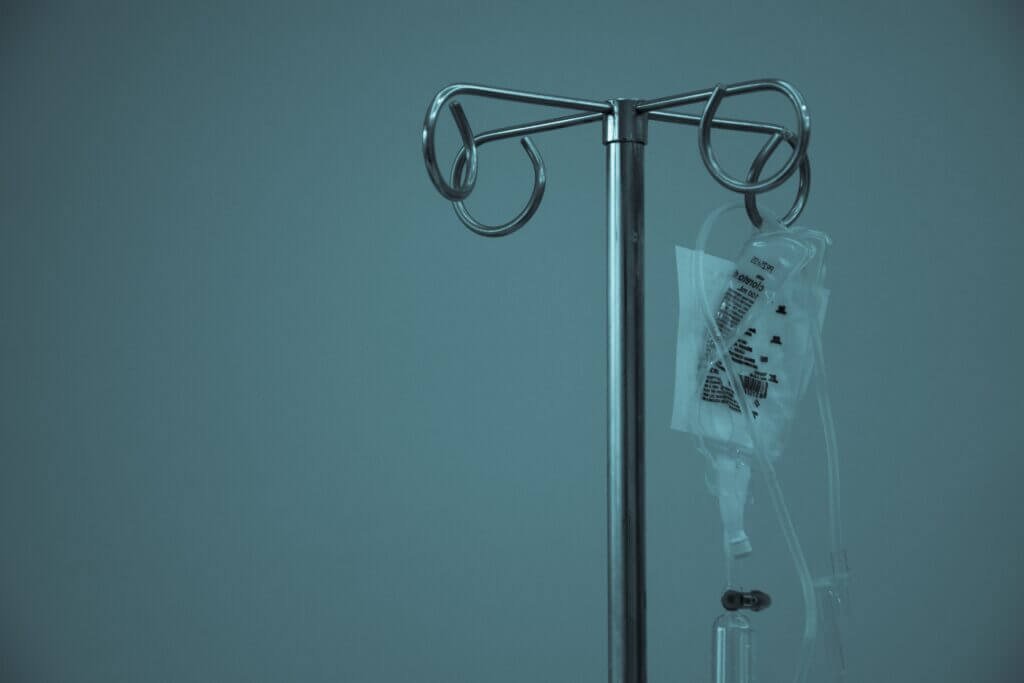Hey there! Whether you’re a die-hard coffee lover or just enjoy a cup to jumpstart your day, it’s time to take a moment and consider the effects of your daily caffeine fix. In this article, we’ll explore the reasons why you might want to rethink your habit of drinking coffee every single day. From the impact on your sleep patterns to potential long-term health concerns, you’ll discover why moderation could be the key to enjoying your beloved brew without any unwanted side effects. So grab a cup of herbal tea and let’s dive into the reasons why you shouldn’t drink coffee everyday!

Effect on Sleep
Disrupts sleep patterns
Drinking coffee everyday can have a significant impact on your sleep patterns. The caffeine in coffee is a stimulant that prevents the adenosine receptors in your brain from signaling the need for sleep. This disruption can result in difficulties falling asleep and staying asleep throughout the night.
Interferes with deep sleep
Deep sleep is an essential stage of the sleep cycle that allows your body to rest and rejuvenate. Unfortunately, regular consumption of coffee can interfere with this crucial phase. The effects of caffeine can shorten the duration of deep sleep, leaving you feeling more tired and less refreshed in the morning.
Increases sleep latency
Sleep latency refers to the time it takes for you to fall asleep after getting into bed. For coffee drinkers, this period may be prolonged due to the stimulating effects of caffeine. The presence of caffeine in your system can make it harder to fall asleep, leading to longer sleep latency and potential sleep deprivation.
Addiction and Dependency
Developing caffeine dependency
Regularly consuming coffee can lead to a dependency on caffeine. Your body may become accustomed to the neurochemical changes caused by caffeine, resulting in the need for higher doses to achieve the same effects. This dependency can make it challenging to quit or reduce your coffee intake.
Experiencing withdrawal symptoms
Attempting to quit or reduce coffee consumption after developing a dependency can lead to unpleasant and sometimes severe withdrawal symptoms. These symptoms can include headaches, irritability, fatigue, difficulty concentrating, and even flu-like symptoms. The discomfort experienced during caffeine withdrawal can deter individuals from attempting to cut back on their coffee habit.
Impacts brain chemistry
Caffeine works by blocking the adenosine receptors in your brain, which can lead to an increase in other neurotransmitters such as dopamine and norepinephrine. Over time, these changes in brain chemistry can alter the balance and functioning of your brain, potentially leading to imbalances in mood, motivation, and overall mental health.
Digestive Issues
Increases stomach acid production
Coffee is acidic in nature and can stimulate the production of stomach acid. This increase in acid can contribute to the development of digestive issues such as heartburn, stomach ulcers, and gastric discomfort. If you already suffer from acid reflux or other gastrointestinal conditions, coffee consumption can exacerbate these symptoms.
May lead to acid reflux
The high acidity of coffee can relax the lower esophageal sphincter, a muscle that normally prevents stomach acid from flowing back into your esophagus. This relaxation can result in acid reflux or heartburn, causing a burning sensation in your chest and throat. Limiting coffee intake can help reduce the frequency and severity of acid reflux episodes.
Contributes to gastrointestinal discomfort
If you’re familiar with the discomfort of an upset stomach or bloating after drinking coffee, you’re not alone. Coffee can contribute to gastrointestinal discomfort by irritating the lining of your stomach and intestines. This irritation can lead to symptoms such as abdominal pain, bloating, gas, and diarrhea.
Dehydration
Diuretic effect of coffee
Coffee has a diuretic effect on the body, meaning it increases urine production and can contribute to dehydration. While it might seem counterintuitive to think that a beverage can dehydrate you, the combination of caffeine’s stimulatory effects and increased urination can lead to fluid loss if not adequately replaced.
Loss of water and essential minerals
In addition to increasing urine production, coffee consumption can also lead to the loss of essential minerals such as potassium, magnesium, and calcium through urine excretion. These minerals are vital for maintaining proper hydration, muscle function, and bone health. Failing to replenish these minerals can further contribute to dehydration and potential health issues.
Requires additional water intake
To counteract the dehydrating effects of coffee, it’s important to increase your water intake. This ensures that you are adequately hydrated despite the diuretic effects of caffeine. Make a conscious effort to drink more water throughout the day to maintain proper hydration levels.

Negative Impact on Mental Health
Heightened anxiety and stress levels
For individuals already prone to anxiety or stress, regular coffee consumption can exacerbate these feelings. The stimulating effects of caffeine can lead to increased heart rate, restlessness, and a general sense of unease. Cutting back on coffee can help reduce the intensity of these symptoms and promote a calmer mental state.
Can worsen symptoms of depression
Research suggests that excessive coffee consumption may worsen symptoms of depression. The exact mechanism behind this relationship is not yet fully understood, but the impact of caffeine on neurotransmitters and brain chemistry likely plays a role. If you’re experiencing symptoms of depression, reducing your coffee intake may be worth considering as part of your overall mental health strategy.
May trigger panic attacks
Individuals with a predisposition to anxiety disorders or panic attacks may find that coffee consumption triggers or intensifies these episodes. The combination of caffeine-induced arousal and an already heightened state of anxiety can push some individuals over the threshold into a full-blown panic attack. If you’re prone to panic attacks, it may be advisable to limit or avoid coffee altogether.
Dependency and Tolerance
Higher intake required for the same effects
Over time, regular consumption of coffee can lead to tolerance, meaning that your body becomes less responsive to the effects of caffeine. As a result, you may need to consume higher quantities of coffee to achieve the same level of alertness or energy boost. This can lead to increased consumption and the potential for negative health effects associated with excessive caffeine intake.
Reduced efficacy over time
Not only does tolerance require higher caffeine doses, but the overall effectiveness of coffee as an energy booster can diminish with time. Your body becomes accustomed to the constant presence of caffeine, and the initial kick you once experienced may no longer be as pronounced. This reduced efficacy can leave you reliant on coffee without reaping the desired benefits.
Impacts overall energy levels
While coffee has a reputation for providing a temporary energy boost, the reliance on caffeine can have long-term consequences for your overall energy levels. The energy spike provided by coffee is often followed by a crash, leaving you feeling more fatigued than before. By reducing your caffeine intake, you may experience more sustained energy throughout the day.

Adverse Effects on Cardiovascular Health
Increases blood pressure
Coffee consumption has been shown to temporarily increase blood pressure due to the stimulating effects of caffeine. In individuals with pre-existing high blood pressure or hypertension, coffee can further elevate their blood pressure levels. Prolonged high blood pressure can lead to cardiovascular issues, including an increased risk of heart disease and stroke.
Raises risk of heart disease
The link between coffee consumption and heart disease is still under debate and highly individualized. While moderate coffee consumption may have some cardiovascular benefits, excessive consumption has been associated with an increased risk of heart disease. It’s important to be mindful of your overall coffee intake and consider any potential cardiovascular risk factors you may have.
Can cause irregular heartbeats
The stimulatory effects of caffeine can have an impact on your heart’s rhythm, potentially leading to irregular heartbeats or what is commonly known as arrhythmias. This irregularity can be uncomfortable or even alarming, especially for those with underlying heart conditions. Limiting your coffee consumption may help reduce the likelihood of experiencing heart rhythm disturbances.
Negative Impact on Dental Health
Staining of teeth
One of the noticeable effects of regular coffee consumption is the staining of teeth. The dark pigments in coffee can cling to your tooth enamel, gradually resulting in a yellowing or discoloration of your teeth. Regular dental hygiene practices, such as brushing and regular dental cleanings, can help minimize the staining caused by coffee.
Enamel erosion
Coffee is acidic, and frequent exposure to acidic substances can erode the protective layer of tooth enamel. Enamel erosion can lead to tooth sensitivity, increased risk of cavities, and other dental issues. To protect your dental health, it’s advisable to moderate your coffee intake or consider using a straw when drinking coffee to minimize contact with your teeth.
Bad breath
The combination of coffee’s strong aroma and its negative impact on oral health can contribute to bad breath. The acidic environment created by coffee can promote the growth of bacteria in your mouth, leading to foul-smelling breath. Maintaining good oral hygiene practices, including regular brushing, flossing, and visits to the dentist, can help combat coffee-induced bad breath.

Interference with Nutrient Absorption
Reduces iron absorption
One of the negative effects of coffee consumption is its ability to inhibit the absorption of iron from the diet. Iron is an essential mineral responsible for ensuring proper oxygen transport and maintaining overall health. Regular coffee consumption, especially around meal times, may hinder your body’s ability to absorb iron effectively.
Limits calcium absorption
Calcium is vital for maintaining strong bones and teeth, but coffee can interfere with its absorption. The oxalates present in coffee can bind with calcium, preventing it from being absorbed into your bloodstream. This interference can potentially lead to calcium deficiencies and increase the risk of osteoporosis or other bone-related issues.
Decreases vitamin D levels
Vitamin D plays a crucial role in numerous bodily functions, including bone health, immune function, and mood regulation. Unfortunately, coffee consumption has been shown to decrease vitamin D levels in the body. This deficiency can have wide-ranging effects on your overall health and may necessitate supplementation or increased sun exposure to maintain adequate vitamin D levels.
Financial Considerations
Coffee expenses add up
Drinking coffee everyday may seem like a harmless habit, but the financial implications can add up over time. Whether you’re buying coffee from a coffee shop or purchasing coffee beans for home brewing, the costs can become substantial. By reducing your coffee consumption or exploring more affordable alternatives, you can save money in the long run.
Potential savings by reducing coffee consumption
Cutting back on coffee consumption has the potential to save you money in more ways than one. Not only will you be spending less on coffee itself, but you may also experience savings on potential health expenses. Avoiding trips to the doctor’s office for caffeine-related health issues and reducing the need for dental treatments due to enamel erosion or staining can make a positive impact on your finances.
In conclusion, while coffee offers a temporary energy boost and the aroma and taste are treat for many, it’s essential to be aware of the potential negative effects it can have on your sleep, mental health, digestive system, hydration, cardiovascular health, dental health, nutrient absorption, and finances. By recognizing and moderating your coffee consumption, you can make informed choices that promote your overall well-being and reduce potential health risks. Remember, the key is always moderation, and finding a balance that works for you.



